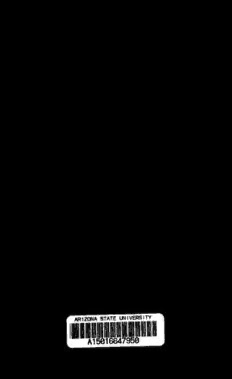
Does Literature Think?: Literature as Theory for an Antimythical Era PDF
430 Pages·2003·24.02 MB·English
Most books are stored in the elastic cloud where traffic is expensive. For this reason, we have a limit on daily download.
Preview Does Literature Think?: Literature as Theory for an Antimythical Era
Description:
"This work fosters an experience that, at the very least, disrupts the tacit reliance on transcendental reason that underlies the framework of Enlightenment knowledge (be it ethical, aesthetic, or ontological). Hence, the range of the question "Does literature think?" must be extended beyond the inherited question "What is literature?" to a domain that addresses core attributes of the history and politics of knowledge in the post-Enlightenment world. Articulating what sort of theoretical knowledge literature achieves in its own terms touches on a range of "nonliterary" questions, conventionally speaking, which pertain ultimately to what determines one's orientation in the world as the maker (and oftentimes destroyer) of the world. Therefore, within the social-historical framework I recognized as my point of departure, the question of "literature as theory" is posed in a variety of ways: specifically as a problem of law and constitutive lawlessness (archē or anarchy) in the formative imagination; as a problem of theatricality and performativity in social poiēsis; as a problem of translation, quotation, and the violence of naming; or as a problem of finitude in history - in other words, as a politics of worldliness and a critique of transcendence. The first three ways listed above correspond roughtly to the three parts of the book ... the fourth may be considered to be an element that permeates the text throughout, receiving most focused elaboration in the opening and closing essays ..." --pref.
See more
The list of books you might like
Most books are stored in the elastic cloud where traffic is expensive. For this reason, we have a limit on daily download.
